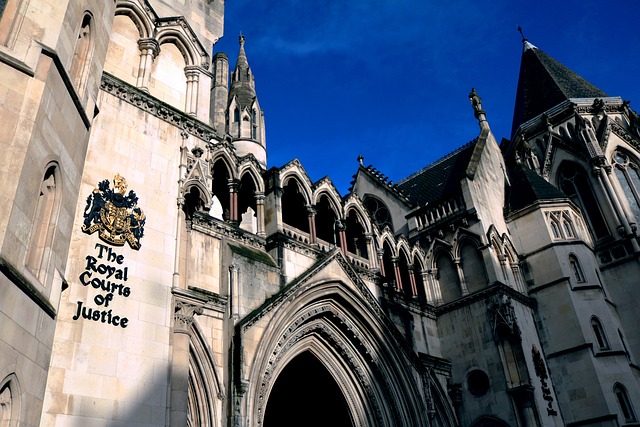Understanding your rights under Oregon criminal law is vital for any criminal defense strategy. Key protections include the right to remain silent and legal representation, ensuring fair trials. Skilled lawyers navigate complex systems, challenge presumptions, and advocate for client rights. Proper evidence handling and preservation are crucial, with meticulous collection and secure storage. Post-trial rights, including appeals, require understanding Oregon criminal law and legal expertise.
In the intricate world of Oregon criminal law, understanding and protecting your rights is paramount. This comprehensive guide delves into the critical aspects of criminal defense, empowering individuals to navigate the complexities of the legal system. From grasping fundamental rights to the role of legal counsel, we explore strategies for ensuring fairness. We dissect key concepts like presumptions, burden of proof, and evidence handling, offering insights on safeguarding interests. Furthermore, we illuminate post-trial rights and appeals, underscoring the relentless pursuit of justice within Oregon’s legal tapestry.
- Understanding Your Rights: A Foundation for Effective Criminal Defense in Oregon
- The Role of Legal Counsel in Safeguarding Your Freedom and Dignity
- Presumptions and Burden of Proof: Ensuring a Fair Trial in Oregon Criminal Law
- Challenges in Criminal Defense: Navigating Complexities and Protecting Your Interests
- Evidence Handling and Preservation: A Crucial Aspect of Safeguarding Your Rights
- Post-Trial Rights and Appeals: Continuously Fighting for Justice in Oregon's Legal System
Understanding Your Rights: A Foundation for Effective Criminal Defense in Oregon

In Oregon, understanding your rights is a fundamental step in any criminal defense strategy. The state’s criminal justice system is governed by Oregon criminal law, which outlines the rights of both accused individuals and victims. Knowing what protections are available to you can significantly impact the outcome of your case. Every person facing criminal charges has the right to remain silent, ensuring their statements cannot be used against them in court. This privilege, enshrined in Oregon’s legal framework, allows individuals to protect themselves from potentially self-incriminating testimony.
Additionally, accused persons are entitled to legal representation, fostering a fair and balanced prosecution process. The Oregon criminal law system ensures that every defendant can access legal aid, enabling them to build a robust defense. This right to counsel includes the opportunity to challenge evidence, cross-examine witnesses, and present arguments on behalf of the individual, thereby safeguarding their interests throughout the legal battle.
The Role of Legal Counsel in Safeguarding Your Freedom and Dignity

In any criminal defense legal battle, the role of legal counsel is paramount in safeguarding your freedom and dignity. Under Oregon criminal law, individuals accused of crimes have the right to legal representation, ensuring they receive a fair trial and protection from potential abuses of power. A competent lawyer acts as a shield, navigating the complex legal system on your behalf and protecting your constitutional rights.
They provide crucial guidance, interpret laws, and present arguments that can significantly impact the outcome of your case. By engaging skilled legal counsel, you gain access to expertise that ensures your rights are not only respected but also actively defended. This is particularly important given the weight of evidence and procedural intricacies often involved in criminal cases under Oregon law.
Presumptions and Burden of Proof: Ensuring a Fair Trial in Oregon Criminal Law

In Oregon criminal law, the principles of presumptions and burden of proof play a pivotal role in ensuring a fair trial for all defendants. Presumptions are legal assumptions that exist independently of evidence presented in court. For instance, a defendant’s innocence is always presumed until proven guilty beyond a reasonable doubt. This presumption shifts the burden of proof to the prosecution, which must provide compelling and conclusive evidence to secure a conviction.
Understanding these concepts is crucial for criminal defense strategies in Oregon. Attorneys must challenge presumptions, scrutinize evidence, and raise doubts to protect their clients’ rights. By doing so, they ensure that the prosecution meets its burden of proving guilt, upholding the fundamental principles of fairness and justice within the state’s legal framework.
Challenges in Criminal Defense: Navigating Complexities and Protecting Your Interests

Navigating the complexities of criminal defense in Oregon can pose significant challenges for both defendants and their legal representatives. The intricate nature of Oregon criminal law demands a deep understanding of constitutional rights, evidentiary rules, and procedural frameworks. Each case is unique, requiring strategic advocacy to ensure fair treatment under the law. One of the primary objectives is to protect the defendant’s rights, including the right to remain silent, access to legal counsel, and a fair trial by jury.
Defendants face numerous complexities, from complex legal arguments to gathering and presenting evidence effectively. Oregon’s criminal justice system can be labyrinthine, with various statutes and regulations that must be rigorously interpreted and applied. Skilled defense attorneys play a pivotal role in guiding clients through this intricate process, ensuring their interests are protected at every step. Effective navigation of these complexities is essential to achieving the best possible outcome in criminal defense legal battles.
Evidence Handling and Preservation: A Crucial Aspect of Safeguarding Your Rights

In Oregon criminal law, evidence handling and preservation are paramount in ensuring a fair trial for the accused. The proper management of evidence begins with collection, documentation, and storage, all while adhering to strict legal protocols. This process involves meticulous record-keeping and secure storage to safeguard any physical or digital evidence that could significantly impact the case outcome.
Lawyers and investigators play crucial roles in this aspect by ensuring that every piece of relevant information is properly handled. They employ strategies such as chain-of-custody documentation, where each transfer of evidence is logged, preventing tampering or contamination. This meticulous approach guarantees that all evidence presented in court maintains its integrity, allowing for robust legal arguments and a more accurate representation of the facts during criminal defense battles in Oregon.
Post-Trial Rights and Appeals: Continuously Fighting for Justice in Oregon's Legal System

After a trial, both the prosecution and the defense have specific post-trial rights in Oregon’s criminal justice system. One of the key aspects for criminal defendants is the right to appeal their case if they believe errors were made during the trial process. Appeals can be a complex procedure, requiring meticulous attention to detail and a thorough understanding of Oregon criminal law. Legal experts are often engaged to review the trial transcript and identify potential violations of defendant rights, such as improper evidence admission or insufficient jury instructions.
Successful appeals can lead to a retrial, a reduced sentence, or even the dismissal of charges. However, navigating the appeals process is a critical phase in the criminal defense strategy, demanding persistence and expertise. In Oregon, defendants have the right to seek legal counsel to guide them through this intricate stage, ensuring their post-trial rights are protected and justice is served.






